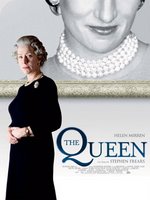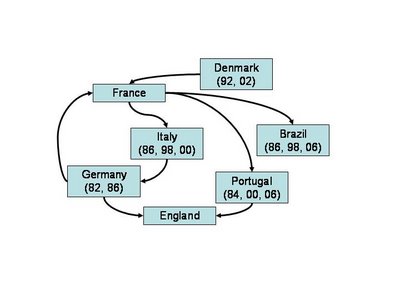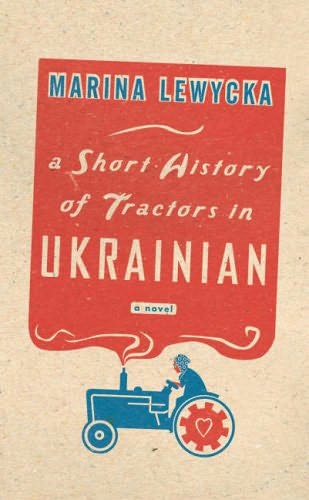Now that I have a blog, it is time for me to make my coming out. No, not that one. My coming out as an atheist and an anti-religious guy. An atheist is not only a non-believer. It is also, to a certain extent, a citizen who is opposed to religions, superstitions and clergies, who fears and despises their influence over society and politics.
I don’t know the English equivalent of ‘anti-clérical’ but that is what I am. I am not only ‘laïc’ (non religious), I am not ‘agnostic’ and I never were. I have personally no doubt that there is no god, nor devil, nor bodhisattvas, nor Santa Claus. Fellow atheists, screw the ‘How-do-you-know?’ they give us. Can you prove that Santa Claus does not exist? Well no: if you look all around Laponia and don’t find his house, that does not mean he does not exist somewhere else; that could might mean he’s hiding very well – and that is exactly what believers believe.
We atheist don’t have to prove that there is no god. We see no god, no-one sees any god, and then we don’t see why anyone should pretend there is one, let alone impose rules based on that fiction. It is just a matter of whether or not you decide to use your brain and senses. In fact, I believe that in the modern world we almost all know that there is no god, but still too many of us don’t want to admit it, and prefer to lie to themselves, to lie to each others in a dangerous denial. For mental comfort, peer pressure, love of tradition etc.
I said ‘coming out’ because I normally don't mention my being atheist. Somehow it has become ‘ringard’ to proclaim oneself ‘atheist’ today. Many find something aggressive in the word and the idea. ‘After all, we are said by 'neutrals', why be dismissive and contemptive with those harmless, sometimes exquisite little old men that we call curés or reverends or rabbis. They are good people. Leave us alone with Saint Barthelemy, the Crusades and all the gruesome crimes of religion in the past centuries… it is not their fault’. Religion-tolerant would go on: ‘Today clergymen are sincere, they live in true poverty and they do social care’. Well NSDAP and Hamas did great welfare and social action too.
Some months ago, I had a pub conversation with a young lithuanian from office, a fervent catholic, and she was sincerely amazed and saddened to hear that I was a non-believer. Seeing her reaction, I realised how self-evident god and christian dogma was to her. But then I played the politically-correct religious-tolerant guy. I didn’t want to hurt her feelings by telling her all the things I really believe, or rather, don't believe.
I read some years ago something about scientists feeling cornered in the born-again America, who coined the term ‘bright’ to emphasize the positive aspect in being atheist. Apparently they were a bit ashamed. And indeed sometimes we atheists call ourselves ‘non-believer’, ‘non-croyant’ in an attempt to play it down. Just as ‘feminist’ has become an insult or at least an incongruity these days. Atheist, it seems, are pitiful hysterical extremists, taking religion as a scapegoat, nostalgic of the Spanish civil war or the ‘bouffeurs de curés’ in the XIXth century. I believe most conservative people think blimey it is not sport, and not fair play to shoot at poor old religion as a whole. On ne tire pas sur les ambulances. Islam may be a threat yes, but please leave harmless christians alone.
Well I think Islam is not intrinsically more dangerous than the others. Islam is just more alive and kicking than other monotheist cults today simply because it is younger and happens to be the religion of countries in social and political turmoil, struggling to embrace modernity without losing everything to Western world values.
If christianity is less dangerous than it used to be it is precisely because our atheist predecessors tamed it, and won a century-long bloody struggle that culminated in France at the end of the XIXth century, with a complete separation between State and religion. Combes, Clemenceau, Ferry are my heroes.
I think ‘non-croyant’ is as repulsive a euphemism as ‘non-voyant’. I say it: not only do I not believe in their gods, in any god, not only do I think they are lying to themselves and lying to others, but I don’t think believers and priests are some kinds of harmless poets in a materialist world. I think they are still all potentially dangerous to public good and to mankind. But I have never dared saying that in a dinner with friends. I suspect most of my friends are not believers, but some may be, I am not exactly sure, I would not want to hurt any of them, It would be rude, wouldn’t it? So I write it. That’s what blogs are for, isn’t it?
The roots of all evilI first felt like writing my ‘atheist pride’ coming out when watching a programme by biologist Richard Dawkins on Channel Four six months ago called ‘The root of all Evil’. By the way can you imagine one second a programme attacking religion in prime time on a big French channel? Or everywhere else in the world than in the UK?
Dawkins methodologically rejects the popular wisdom that, after all, religions have done good to mankind, globally. It reminds me of Georges Marchais, a French communist leader of the 70s who, in the early 80s still dared say that Soviet Communism in Russia had been “overall positive”.
Dawkins also puts down the argument that ‘We still need to keep the fiction of god to maintain family values, and the sense of good and evil’.
After politely interviewing a close friend of that anti-abortion fanatic who killed a doctor in the US, whom he found to be a very nice person, Dawkins makes this crucial point: ‘Without religion, good people would do good things and bad people would do bad things. With religion, you can get good people to do evil things.’ Indeed there are plenty of evidence in animal societies, that family values and a sense of ‘good’ (empathy, co-operation) at the scale of a species, do not require a supernatural belief to be maintained.
Then Dawkins interviews the bishop of Oxford. The Moderate Christian man. What can be more moderate on Earth than a modern-day Anglican bishop? And indeed the man is no ignorant born-again redneck or insane ultra-orthodox rabbi or frustrated imam. He is an exquisite old man, who explains that the Bible has to be interpretated, that we can rule out literal reading of Adam and Eve, stoning adulterous women, and even maybe do without the - admittedly peculiar - virgin Birth theory, but that the belief in the resurrection of the Christ must at the core of Christian beliefs. Phew, one moment I thought he was going to tell us Christ was just an option in Christian credo. ‘Modern’ christians are really cornered. Their loss of market share to more radical, traditionalist or charismatic churches seems to show that the individuals who still want religion today, want the good old radical stupid flavour of it. They are not interested in an ‘intelligent’ form of religion.
How can we be ‘moderately’ religious? How can we cherrypick into racist, violent, supernatural codes? If you believe in virgin Birth or resurection and stuffs like that, you might as well be ready to believe anything, aren’t you? Believers are betraying rationality; moderate religious believers are betraying both religion and rationality.
Now then, maybe religion has been badly used by cynic men all along history, but the Book themselves are surely full of good, sensible things?
Few of us indeed can feel any sympathy to psychopath killers like Abraham today (a man who heard voices telling him to kill his kid: how else do you call him?). But many think monotheism is an improvement over primitive religions of barbaric times. It’s all about love isn’t it? Again, that is forgetting how cruel and primitive is the use of original sin and the sacrifice of the Son, how sadistic and masochist Christianity is. Saint Paul made sure Christianity would become this fantastic instrument of guilt. Dawkins explores the use of terror using the concept of damnation and Hell across centuries. Those who have read ‘Angela’s Ashes’ for instance, know that 50 years ago, sadistic priests were still scaring children to death with the idea of Hell and were psychologically emasculating some of them for life.
Dawkins then visits the US and meets born-again christian who are producing and touring good old spooky plays about the Devil and Hell, to scare teenagers into good.
This calm and clear, yet courageous and unimpressed, science man made me feel like standing up to my point. Since I have no balls to do it in Speakers Corner at stone throw distance from the Nation of Islam and other weirdos, I do it here.
My atheist credo1)
There are no gods or supernatural beings, unless proven otherwise. Don’t let them tell you that ‘Nobody knows’.
2)
Religions have always harmed mankind and are still doing so when they get the opportunity.
3)
Even in the Western world, the beast is not dead. It is still an enemy that we must keep under control. Because thank god religion is today considerably weaker in the Western world – thanks to education and great men who gave their lifes to combat religion - we must not think religion is down forever.
4)
We don’t need religion to enforce a civilised society, in which people do not harm each others. We have values and we have laws.
5)
There are no such things as ‘moderate’ religions. There is no cherrypicking in Holy books and letting aside their most primitive and deadly instructions. Either you believe or you don’t believe in supernatural forces and their being good guidance for us.
From that what should be the consequences in public life rules?
6) Now if, in a free society, without having been constrained in their childhood, some people still believe in gods or UFOs,
this is their right and we must tolerate that (although personally the only supernatural being of whom I would tolerate the worshiping is Santa Claus, and only by under-five-year-olds). They can even speak of it publicly as long as they don’t endorse the criminal consequences of hardcore religion. I even do tolerate Tom Cruise jumping on Oprah Winfrey’s couch in a hysterical Scientologist delirium – it is quite fun actually.
7) But
public authorities should not finance nor encourage organised religions or sects in any ways, as they still do today. Even in Europe we are not secular enough. I object use public money for the refurbishing of thousands of empty churches. And religious schools are no ordinary citizen associations like sport clubs or libraries, that deserve public support.
8) Going a bit further I personally think
children should be protected from political or religious endoctrinement. I do not think our tolerating religion should go as far as to tolerate religious schools. Especially when science teaching is contaminated by religious thinking.
9) Finally
religion should be totally ousted from the political scene. Fighting religion is not only fighting clerical states abroad. It is also stopping tolerating insidious remnants in our own societies. The beast is not dead. I am sick and tired of seeing an elected man swearing on a Bible or mentioning god in speeches, and not only in the US. it scares me to think that people who can believe in Genesis or virgin birth, who think that fanatical killers like Abraham or Moses are cool guys… are allowed to rule Government and take such important decisions like wars.







